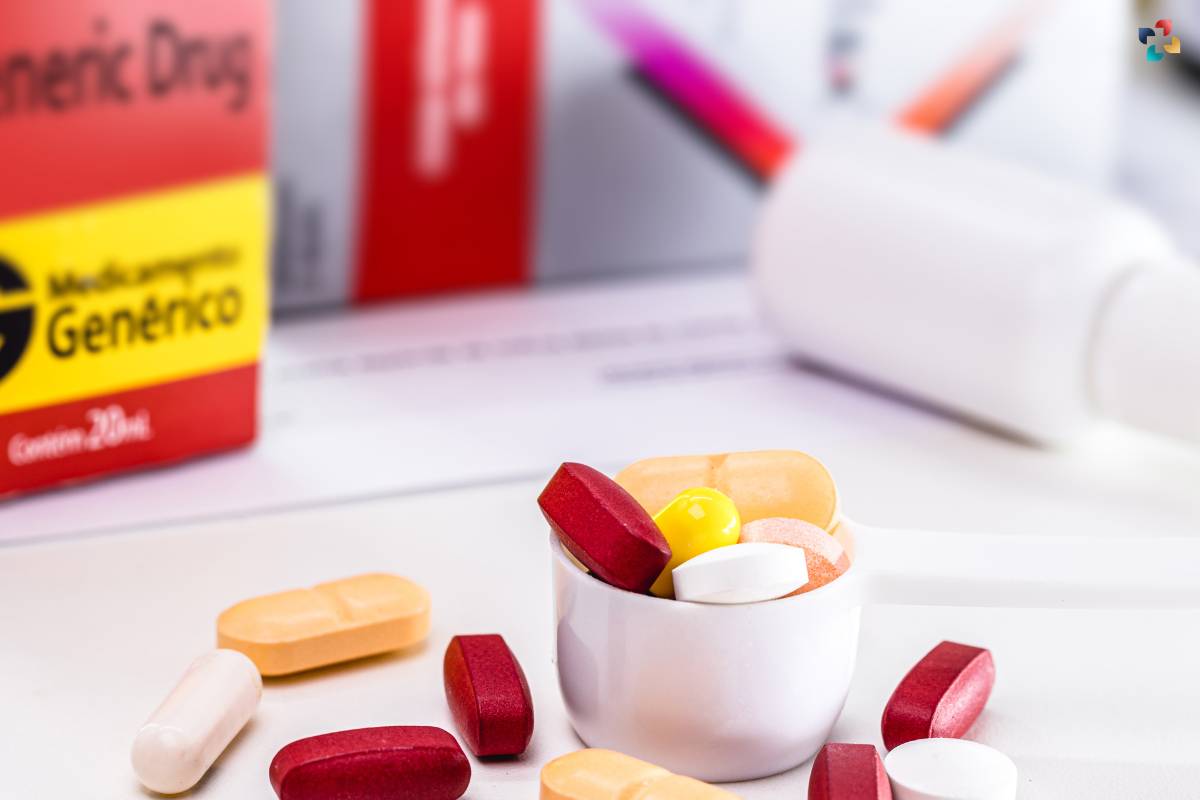The pharmacology field is growing day by day, especially in recent years. Medicines fall under brand names and generic meds which are locally made have comparatively lower prices. They have a combination of various molecules which the brand names sometimes do not have. The naming system in these two types of medicines is different. In brand-name medicines, the brand is named after the producing company, whereas in generic medicines, the main ingredient in the medicine is highlighted and given the name of it. Regarding the effectiveness of the generic medicines, they have the same quality ingredient as the brand name, but it is more active.
For authenticity, generic medicines are not the same as brand names. The taste, color, look and packing differ from each other making it different.
Let’s have a look at brand-name versus generic medicines: What’s the difference?
1. Active Ingredients and Formulation
Brand-Name Medicines: These drugs are typically the first to enter the market. They contain an active ingredient that has undergone rigorous testing and research. The formulation, including inactive ingredients, is proprietary and often patented.
Generic Medicines: Generics contain the same active ingredients as their brand-name counterparts. However, the formulation may differ in terms of inactive components. This variation in inactive ingredients can sometimes lead to minor differences in appearance, taste, or texture.
2. Cost Difference
Brand-Name Medicines: Brand-name medications are usually more expensive due to the research, development, and marketing costs incurred by pharmaceutical companies.

Generic Medicines: Generics are significantly cheaper because they do not involve the same research and development expenses. This affordability makes them a more accessible option for many patients.
3. FDA Approval
Brand-Name Medicines: These drugs undergo rigorous testing and clinical trials before receiving approval from the U.S. Food and Drug Administration (FDA). The FDA monitors their safety and efficacy throughout their lifecycle.
Generic Medicines: Generics must also receive FDA approval. To gain approval, they must demonstrate bioequivalence to the brand-name drug, ensuring that they have the same therapeutic effect and safety profile.
4. Effectiveness and Relief
Brand-Name Medicines: These drugs are known for their effectiveness, primarily because they are tested and developed with great care. Patients often trust them to provide reliable relief from their medical conditions.
Generic Medicines: Generics are designed to be equally effective as brand-name drugs. The FDA’s requirement for bioequivalence means that they should provide the same relief from illness. However, some patients may perceive differences due to variations in inactive ingredients or psychological factors.
Do Generic Medicines Provide Lesser Relief to Illness?
The short answer is no, generic medicines do not inherently provide lesser relief to illness. The FDA’s stringent requirements for bioequivalence ensure that generic drugs have the same therapeutic effect as their brand-name counterparts. When properly formulated and used as directed, generics are equally effective in treating medical conditions and providing relief.
It is important to recognize that any perceived differences in relief may stem from factors unrelated to the medication’s efficacy. These factors can include individual variations in metabolism, psychological factors, or differences in inactive ingredients, such as fillers or dyes. However, these variations do not imply that generic medicines are less effective in treating illnesses.
Precautions When Shifting from Brand-Name to Generic Medicines;
Transitioning from brand-name to generic medications should be done with care to ensure the continued effectiveness and safety of treatment. Here are some essential precautions to consider:

- Consult Your Healthcare Provider:
Before making any changes to your medication regimen, consult your healthcare provider. They can provide guidance on whether it is appropriate to switch to a generic version of your medication.
- Monitor Your Response:
After transitioning to a generic medication, pay attention to how your body responds. If you notice any unexpected side effects or changes in your condition, report them to your healthcare provider.
- Stay Informed:
Ask your pharmacist or healthcare provider about the specific generic version you are prescribed. Some patients may have preferences or sensitivities to certain formulations, and being informed can help ensure your comfort and well-being.
- Consistent Use:
Be diligent about taking your medication as prescribed. Consistency in dosage and timing is crucial for the medication to be effective, regardless of whether it is a brand-name or generic drug.
Common Misconceptions Surrounding Generic Medicines;
Misconceptions often surround generic medicines, leading to skepticism and confusion among patients. Let’s address some of these common myths:

Myth #1: Generics Are Inferior: As discussed earlier, generics are bioequivalent to brand-name drugs, which means they are just as effective and safe when used as directed.
Myth #2: Generics Are Less Regulated: Generic medications undergo the same rigorous FDA approval process as brand-name drugs. They must meet strict quality and safety standards.
Myth #3: Generics Cause More Side Effects: Generics have the same potential for side effects as brand-name drugs because they contain the same active ingredients. Any differences in side effects are typically due to individual variations and not the generic itself.
Myth #4: Generics Are Less Reliable: Generics are produced by reputable pharmaceutical companies that adhere to strict quality control measures. They are subject to the same standards as brand-name drugs, ensuring reliability.
Myth #5: Generics Are Always Available: While many brand-name drugs have generic equivalents, this is not true for every medication. Some newer or specialized drugs may not have generic alternatives.
Conclusion
In conclusion, the choice between brand-name and generic medicines should be based on individual needs, preferences, and healthcare provider recommendations. Generics are a cost-effective and equally effective option for most patients, but careful monitoring and communication with healthcare professionals are essential when transitioning from brand-name to generic medications. The relief which they provide are same as brand-name medicines. Dispelling the myths surrounding generic medicines helps patients make informed decisions about their healthcare, ensuring that they receive the relief they need without unnecessary doubts or concerns.











